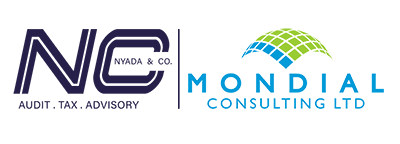Our Services
We provide a wide range of services that are essential for managing the financial aspects of businesses. We help organizations maintain accurate financial records, comply with tax regulations, make informed decisions, and achieve financial goals. Some of services we offer include:
Audit and Assurance
In providing internal audit services, our approach and methodology is anchored in International Standards on Auditing and industry best practices. The internal audit will cover all aspects of the company operations with emphasis on:
- Identification and analysis of risks.
- Reliability and integrity of financial and operational information.
- Compliance with laws, regulations and contracts.
- Safeguarding of assets.
- Effectiveness and efficiency of operations of the whole entity.
- To follow up on recommendations included in prior audit reports.
- Internal Audit Short term and long term staff outsource/ placements.
- Other as may be requested by directors.
The audit process includes 3 phases: planning, fieldwork and reporting, which includes reporting to the management and to the board. This 3-step process allows Nyada and Company to get a wholesome view of the company and allows us to better analyze the business.

Understanding Audit and Assurance in Financial Integrity
Audit and assurance are terms often used in the field of accounting and finance, and they involve processes that help ensure the accuracy and reliability of financial information.
Audit:
- Definition: An audit is a systematic examination of financial statements, records, and other financial information of an organization to ensure their accuracy and completeness.
- Purpose: The primary purpose of an audit is to provide an independent and objective assessment of the financial statements of an entity. It helps stakeholders, such as investors, creditors, and regulatory bodies, gain confidence in the reliability of the financial information presented by the organization.
- Auditor’s Role: Nyada and Company as the auditor, conducts the audit. We examine financial records, internal controls, and other relevant information to express an opinion on whether the financial statements are presented fairly and in accordance with applicable accounting standards.
Assurance:
- Definition: Assurance involves providing an independent and objective evaluation of information or processes to enhance the credibility and reliability of that information.
- Purpose: Assurance services go beyond financial statements and can cover a broader range of information and processes, including compliance with regulations, internal controls, and performance metrics. The goal is to provide assurance to stakeholders that the information they rely on is accurate and trustworthy.
- Assurance Engagements: Assurance engagements can take various forms, and they are not limited to financial information. For example, an assurance engagement could involve assessing the effectiveness of internal controls, reviewing the reliability of environmental sustainability reports, or ensuring compliance with specific industry regulations.
Financial Statement Audit: Key Components
Financial statement audits are systematic examinations of an organization’s financial statements and related processes conducted by independent auditors to provide assurance on the accuracy and fairness of the presented financial information. The audit process involves several key components, including audit procedures, audit evidence, audit risk assessment, and the concept of materiality.
1. Audit Procedures:
Audit procedures are the specific steps and techniques that auditors employ to gather the necessary evidence to form their opinion on the financial statements. These procedures are designed to obtain a reasonable level of assurance that the financial statements are free from material misstatement. Common audit procedures include:
- Substantive Procedures: Testing the accuracy and completeness of transactions and account balances.
- Analytical Procedures: Evaluating financial information through analysis, comparison, and investigation of plausible relationships.
- Test of Controls: Assessing the effectiveness of internal controls in preventing and detecting material misstatements.
2. Audit Evidence:
Audit evidence is the information gathered by auditors to support their conclusions and opinions on the financial statements. It includes documentation, records, and other tangible sources that provide a basis for the auditor’s findings. The quality and reliability of audit evidence are crucial in forming a valid opinion. Common sources of audit evidence include:
- Documentation: Examining contracts, invoices, receipts, and other relevant documents.
- Observation: Directly observing physical inventory counts or other operational processes.
- Inquiry: Seeking explanations and clarifications from management and personnel.
- Analytical Procedures: Comparing financial information for consistency and reasonableness.
3. Audit Risk Assessment:
Audit risk is the risk that auditors may issue an incorrect opinion on the financial statements. Auditors assess and manage audit risk through a comprehensive risk assessment process. This involves understanding the entity and its environment, including internal controls, industry conditions, and economic factors. The components of audit risk include:
- Inherent Risk: The susceptibility of financial statement elements to material misstatement without considering internal controls.
- Control Risk: The risk that internal controls will not prevent or detect material misstatements.
- Detection Risk: The risk that audit procedures will fail to detect material misstatements.
4. Materiality in Auditing:
Materiality is a key concept in auditing that reflects the significance of an omission or misstatement in the financial statements. Auditors set materiality thresholds to determine the level of misstatement that would influence the judgment of financial statement users. Factors influencing materiality include:
- Size and Nature of the Entity: Larger entities may have larger materiality thresholds.
- Industry Considerations: Certain industries may have specific financial statement requirements.
- User Information Needs: Considering the needs of various stakeholders, such as investors and creditors.
A financial statement audit is a multifaceted process that involves careful planning, execution of audit procedures, evaluation of audit evidence, assessment of audit risks, and consideration of materiality. These components collectively ensure the reliability and credibility of financial information presented to stakeholders.
